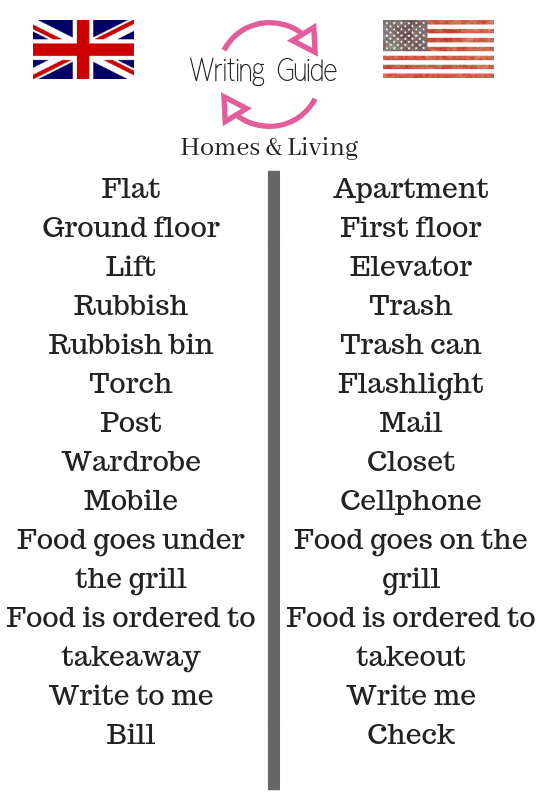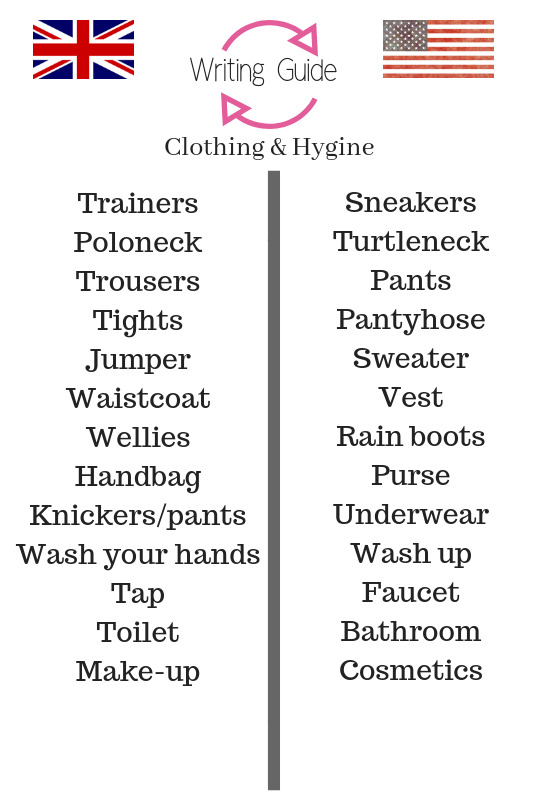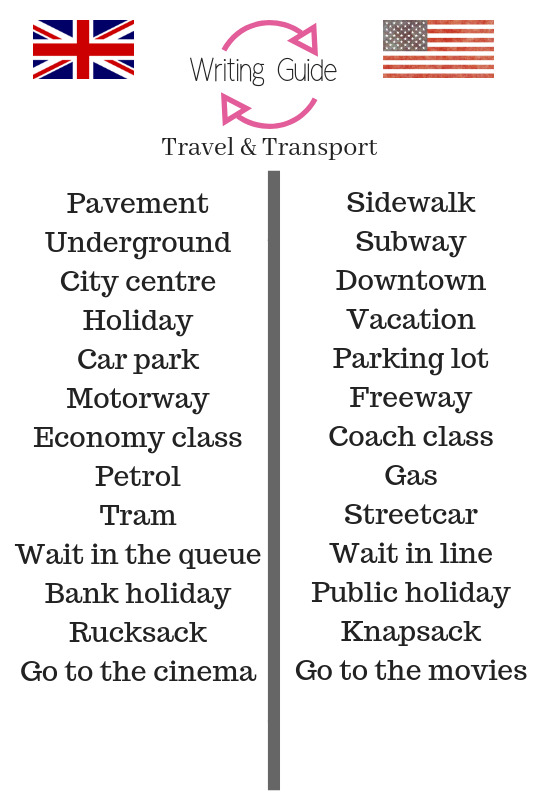Text
TEN possible REASONS why your SCENE feels FLAT
Excessive focus on one character
Lacking in descriptions or pointers about setting and time
Too much dialogue
Too much exposition
Bad word choice (this one never really ends, does it?)
Lacking atmosphere
Lacking motivation/goals
Lacking tension
An abnormally slow pacing
One active character and the rest being passive
11K notes
·
View notes
Text
Surnames are just as important as given names. So, I compiled a list of the websites I use to find my surnames.
English Surnames
Dutch Surnames
Spanish Surnames
Scottish Surnames
German Surnames
Italian Surnames
Irish Surnames
French Surnames
Scandinavian Surnames
Welsh Surnames
Jewish Surnames
Surnames By Ethnicity
Most Common Surnames in the USA
Most Common Surnames in Great Britan
Most Common Surnames in Asia
269K notes
·
View notes
Text
aww nasa has a page for space technology terms you can use in science fiction
nerds
198K notes
·
View notes
Text
Fantasy Wardrobe: Fabrics
We often call clothes silk when they are satin, velvet where they are velveteen or we have no clue what we’re on about. So today let’s look at fabrics.
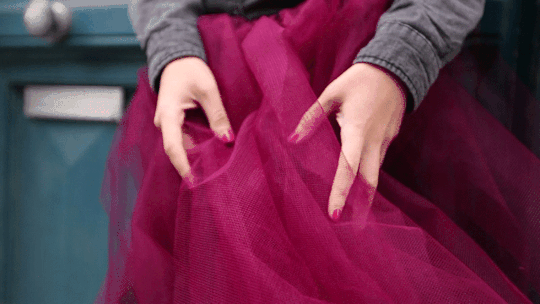
Laying down the law

Many renaissance/mediaeval societies governed over who could wear what. By adding these laws you had a layer of depth to your world.
Women and men could only be dressed n clothes benefiting their position
Female servants or their daughters could not wear veils costing more than twelve pence
Knightly families could not wear cloth of gold or sable fur or velvets
The wife or daughter of a labourer were not to wear clothes beyond a certain price or a girdle garnished with silver
Cloth of gold and purple silk only worn by the royal family. This goes for ermine.
The importation of silk and lace foreigners was prohibited when the kingdom produced those textiles.
Peasant Clothing (Beggars to Merchant classes)

Wool: This was the staple of much of the clothes owned by peasants. It was in supply and it wasn’t as costly as most fabrics when undyed. It was also warm.
Linen: Forget about softness. Peasant linen was made of coarser weaves and flax. It was heavier than noble linen.
Cotton: A lightweight fabric used in hotter climates. It was softer than the linen and airier.
Fustian: heavy cloth woven from cotton, for menswear.
Leather: Leather was used for boots and shoes rather than killer jackets.
Nobility & Royalty

Cloth of Gold: Cloth made from woven threads of gold (very expensive)
Cloth of silver: cloth made from woven silver strands (very expensive)
Samite: a rich silk fabric woven with gold and silver threads
Tulle: A netting sort of material
Brocade: rich silk fabric with raised patterns sewn on it.
Cambresine: fine, lightweight linen
Cambric: thin white cotton or linen
Cypress: gauze made of cotton or silk
Damask: like brocade but the patterns are flat
Delaine : light wool/mixed wool and cotton
Lawn: sheer plain-woven cotton or linen
Sarsenet: fine and soft silk
Sateen: glossy cotton or wool
Satin: closely woven silk, shiny
Taffeta: Thickly woven silk
Velvet : piled fabric of silk, cotton or synthetic material
Velvetine: cotton with silk pile
Saxony: fine, delicate woollen fabric
Alençon Lace: intricate floral lace with three-dimensional corded detail sewn onto a fine tulle backing
Chantilly Lace: lightest of lace
Charmeuse: smooth, flowing, silk, cotton,
Chiffon: sheer and lightweight fabric
Crepe de Chine: thicker, lightly textured silk
Dupioni: crisp lusturous silk
Organza: sheer and lightweight fabric of very fine weave silk
Georgette: sheer fabric of silk
Guipure Lace: heavier lace
Designs

Embroidery: Patterns sewn on the fabric by thread
Appliqué: decorative fabric, often lace or floral motifs, sewn onto the main material
Embellishment: details such as beads, crystals, sequins, pearls
Trim: a line of material or fur that finishes off a hem or cuff.
Piping: a cord lining the fabric creating a ribbed look.
Colours
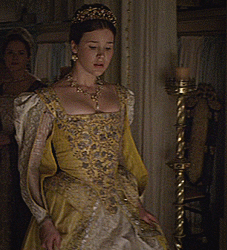
Here are the colours that you will catch your people wearing. Keep in mind that dyes had to be sourced and could be very expensive.
Peasant: brown, red or gray.
Nobility: Gold, silver, crimson or scarlet, deep indigo blue, violet colors and even deep black and pure white colors
Royalty: Purple
Furs

Mink: Soft and lightweight, silkly and glossy furs
Fox: Long, lustrous, colourful and easy to dye.
Ermine: White fur streaked with black (ONLY FOR ROYALTY)
Sable: long, luxurious, dense but light.
Wolf: thick, tough, warm but has a bad smell
Vair: fur from a red squirrel really only used for trimming.
31K notes
·
View notes
Text
Describing Skin Colors
Having trouble finding synonyms for ‘white’, ‘black’, ‘tan’, etc? Have any clear idea what tone you’re going for? Here’s some web pages for skin tone description and references:
Words Used To Describe Skin Color
Handy Words for Skin Tone (Includes palettes and comparisons)
Describing Characters of Color
More Tone Synonyms w/ Pictures
7 Offensive Mistakes Writers Make (includes more than just skin color)
38K notes
·
View notes
Text

Writing with Color: Description Guide - Words for Skin Tone
We discussed the issues describing People of Color by means of food in Part I of this guide, which brought rise to even more questions, mostly along the lines of “So, if food’s not an option, what can I use?” Well, I was just getting to that!
This final portion focuses on describing skin tone, with photo and passage examples provided throughout. I hope to cover everything from the use of straight-forward description to the more creatively-inclined, keeping in mind the questions we’ve received on this topic.
So let’s get to it.
S T A N D A R D D E S C R I P T I O N
B a s i c C o l o r s

Pictured above: Black, Brown, Beige, White, Pink.
“She had brown skin.”
This is a perfectly fine description that, while not providing the most detail, works well and will never become cliché.
Describing characters’ skin as simply brown or beige works on its own, though it’s not particularly telling just from the range in brown alone.
C o m p l e x C o l o r s
These are more rarely used words that actually “mean” their color. Some of these have multiple meanings, so you’ll want to look into those to determine what other associations a word might have.

Pictured above: Umber, Sepia, Ochre, Russet, Terra-cotta, Gold, Tawny, Taupe, Khaki, Fawn.
Complex colors work well alone, though often pair well with a basic color in regards to narrowing down shade/tone.
For example: Golden brown, russet brown, tawny beige…
As some of these are on the “rare” side, sliding in a definition of the word within the sentence itself may help readers who are unfamiliar with the term visualize the color without seeking a dictionary.
“He was tall and slim, his skin a russet, reddish-brown.”
Comparisons to familiar colors or visuals are also helpful:
“His skin was an ochre color, much like the mellow-brown light that bathed the forest.”
M o d i f i e r s
Modifiers, often adjectives, make partial changes to a word.The following words are descriptors in reference to skin tone.
D a r k - D e e p - R i c h - C o o l
W a r m - M e d i u m - T a n
F a i r - L i g h t - P a l e
Rich Black, Dark brown, Warm beige, Pale pink…
If you’re looking to get more specific than “brown,” modifiers narrow down shade further.
Keep in mind that these modifiers are not exactly colors.
As an already brown-skinned person, I get tan from a lot of sun and resultingly become a darker, deeper brown. I turn a pale, more yellow-brown in the winter.
While best used in combination with a color, I suppose words like “tan” “fair” and “light” do work alone; just note that tan is less likely to be taken for “naturally tan” and much more likely a tanned White person.
Calling someone “dark” as description on its own is offensive to some and also ambiguous. (See: Describing Skin as Dark)
U n d e r t o n e s
Undertones are the colors beneath the skin, seeing as skin isn’t just one even color but has more subdued tones within the dominating palette.

Mentioning the undertones within a character’s skin is an even more precise way to denote skin tone.
As shown, there’s a difference between say, brown skin with warm orange-red undertones (Kelly Rowland) and brown skin with cool, jewel undertones (Rutina Wesley).
“A dazzling smile revealed the bronze glow at her cheeks.”
“He always looked as if he’d ran a mile, a constant tinge of pink under his tawny skin.”
Standard Description Passage
“Farah’s skin, always fawn, had burned and freckled under the summer’s sun. Even at the cusp of autumn, an uneven tan clung to her skin like burrs. So unlike the smooth, red-brown ochre of her mother, which the sun had richened to a blessing.”
-From my story “Where Summer Ends” featured in Strange Little Girls
Here the state of skin also gives insight on character.
Note my use of “fawn” in regards to multiple meaning and association. While fawn is a color, it’s also a small, timid deer, which describes this very traumatized character of mine perfectly.
Though I use standard descriptions of skin tone more in my writing, at the same time I’m no stranger to creative descriptions, and do enjoy the occasional artsy detail of a character.
C R E A T I V E D E S C R I P T I O N
Whether compared to night-cast rivers or day’s first light…I actually enjoy seeing Characters of Colors dressed in artful detail.
I’ve read loads of descriptions in my day of white characters and their “smooth rose-tinged ivory skin”, while the PoC, if there, are reduced to something from a candy bowl or a Starbucks drink, so to actually read of PoC described in lavish detail can be somewhat of a treat.
Still, be mindful when you get creative with your character descriptions. Too many frills can become purple-prose-like, so do what feels right for your writing when and where. Not every character or scene warrants a creative description, either. Especially if they’re not even a secondary character.
Using a combination of color descriptions from standard to creative is probably a better method than straight creative. But again, do what’s good for your tale.
N A T U R AL S E T T I N G S - S K Y

Pictured above: Harvest Moon -Twilight, Fall/Autumn Leaves, Clay, Desert/Sahara, Sunlight - Sunrise - Sunset - Afterglow - Dawn- Day- Daybreak, Field - Prairie - Wheat, Mountain/Cliff, Beach/Sand/Straw/Hay.
Now before you run off to compare your heroine’s skin to the harvest moon or a cliff side, think about the associations to your words.
When I think cliff, I think of jagged, perilous, rough. I hear sand and picture grainy, yet smooth. Calm. mellow.
So consider your character and what you see fit to compare them to.
Also consider whose perspective you’re describing them from. Someone describing a person they revere or admire may have a more pleasant, loftier description than someone who can’t stand the person.
“Her face was like the fire-gold glow of dawn, lifting my gaze, drawing me in.”
“She had a sandy complexion, smooth and tawny.”
Even creative descriptions tend to draw help from your standard words.
F L O W E R S
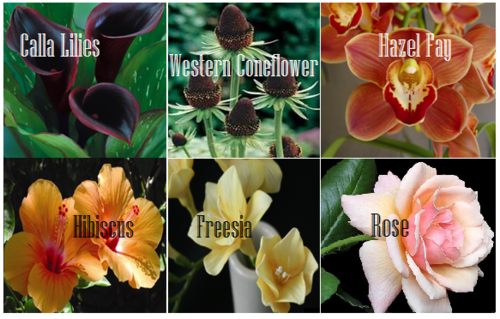
Pictured above: Calla lilies, Western Coneflower, Hazel Fay, Hibiscus, Freesia, Rose
It was a bit difficult to find flowers to my liking that didn’t have a 20 character name or wasn’t called something like “chocolate silk” so these are the finalists.
You’ll definitely want to avoid purple-prose here.
Also be aware of flowers that most might’ve never heard of. Roses are easy, as most know the look and coloring(s) of this plant. But Western coneflowers? Calla lilies? Maybe not so much.
“He entered the cottage in a huff, cheeks a blushing brown like the flowers Nana planted right under my window. Hazel Fay she called them, was it?”
A S S O R T E D P L A N T S & N A T U R E

Pictured above: Cattails, Seashell, Driftwood, Pinecone, Acorn, Amber
These ones are kinda odd. Perhaps because I’ve never seen these in comparison to skin tone, With the exception of amber.
At least they’re common enough that most may have an idea what you’re talking about at the mention of “pinecone."
I suggest reading out your sentences aloud to get a better feel of how it’ll sounds.
"Auburn hair swept past pointed ears, set around a face like an acorn both in shape and shade.”
I pictured some tree-dwelling being or person from a fantasy world in this example, which makes the comparison more appropriate.
I don’t suggest using a comparison just “cuz you can” but actually being thoughtful about what you’re comparing your character to and how it applies to your character and/or setting.
W O O D

Pictured above: Mahogany, Walnut, Chestnut, Golden Oak, Ash
Wood can be an iffy description for skin tone. Not only due to several of them having “foody” terminology within their names, but again, associations.
Some people would prefer not to compare/be compared to wood at all, so get opinions, try it aloud, and make sure it’s appropriate to the character if you do use it.
“The old warlock’s skin was a deep shade of mahogany, his stare serious and firm as it held mine.”
M E T A L S

Pictured above: Platinum, Copper, Brass, Gold, Bronze
Copper skin, brass-colored skin, golden skin…
I’ve even heard variations of these used before by comparison to an object of the same properties/coloring, such as penny for copper.
These also work well with modifiers.
“The dress of fine white silks popped against the deep bronze of her skin.”
G E M S T O N E S - M I N E R A LS

Pictured above: Onyx, Obsidian, Sard, Topaz, Carnelian, Smoky Quartz, Rutile, Pyrite, Citrine, Gypsum
These are trickier to use. As with some complex colors, the writer will have to get us to understand what most of these look like.
If you use these, or any more rare description, consider if it actually “fits” the book or scene.
Even if you’re able to get us to picture what “rutile” looks like, why are you using this description as opposed to something else? Have that answer for yourself.
“His skin reminded her of the topaz ring her father wore at his finger, a gleaming stone of brown, mellow facades.”
P H Y S I C A L D E S C R I P T I ON
Physical character description can be more than skin tone.
Show us hair, eyes, noses, mouth, hands…body posture, body shape, skin texture… though not necessarily all of those nor at once.
Describing features also helps indicate race, especially if your character has some traits common within the race they are, such as afro hair to a Black character.
How comprehensive you decide to get is up to you. I wouldn’t overdo it and get specific to every mole and birthmark. Noting defining characteristics is good, though, like slightly spaced front teeth, curls that stay flopping in their face, hands freckled with sunspots…
G E N E R A L T I P S
Indicate Race Early: I suggest indicators of race be made at the earliest convenience within the writing, with more hints threaded throughout here and there.
Get Creative On Your Own: Obviously, I couldn’t cover every proper color or comparison in which has been “approved” to use for your characters’ skin color, so it’s up to you to use discretion when seeking other ways and shades to describe skin tone.
Skin Color May Not Be Enough: Describing skin tone isn’t always enough to indicate someone’s ethnicity. As timeless cases with readers equating brown to “dark white” or something, more indicators of race may be needed.
Describe White characters and PoC Alike: You should describe the race and/or skin tone of your white characters just as you do your Characters of Color. If you don’t, you risk implying that White is the default human being and PoC are the “Other”).
PSA: Don’t use “Colored.” Based on some asks we’ve received using this word, I’d like to say that unless you or your character is a racist grandmama from the 1960s, do not call People of Color “colored” please.
Not Sure Where to Start? You really can’t go wrong using basic colors for your skin descriptions. It’s actually what many people prefer and works best for most writing. Personally, I tend to describe my characters using a combo of basic colors + modifiers, with mentions of undertones at times. I do like to veer into more creative descriptions on occasion.
Want some alternatives to “skin” or “skin color”? Try: Appearance, blend, blush, cast, coloring, complexion, flush, glow, hue, overtone, palette, pigmentation, rinse, shade, sheen, spectrum, tinge, tint, tone, undertone, value, wash.
Skin Tone Resources
List of Color Names
The Color Thesaurus
Things that are Brown (blog)
Skin Undertone & Color Matching
Tips and Words on Describing Skin
Photos: Undertones Described (Modifiers included)
Online Thesaurus (try colors, such as “red” & “brown”)
Don’t Call me Pastries: Creative Skin Tones w/ pics 3 2 1
Writing & Description Guides
WWC Featured Description Posts
WWC Guide: Words to Describe Hair
Writing with Color: Description & Skin Color Tags
7 Offensive Mistakes Well-intentioned Writers Make
I tried to be as comprehensive as possible with this guide, but if you have a question regarding describing skin color that hasn’t been answered within part I or II of this guide, or have more questions after reading this post, feel free to ask!
~ Mod Colette
170K notes
·
View notes
Text
Describing Voices
Does your character have a particular voice type in mind? Do they have an accent? Are they monotonous? Does their voice grate? Is it silky? Sultry? Low? High-pitched? Do they slur? Stutter? What in the world is the difference between some of these? Here are some links below to help further identify your character:
Words to Describe Someone’s Voice ~ With definitions of each
An Article About Describing Voice ~ Includes some thought-provoking questions to ask yourself and some exercises
Voice Types ~ Describes and gives examples of types like soprano, alto, etc.
Panix.com Character Chart ~ An extremely in-depth character chart; scroll down to the Voice Quality category for examples of some of the many types of voices, ranging from aphonic to glottalized to yawny.
Vocal Qualities ~ Directly from the above link, for those who want to head straight for the quality types.
Vocal Impressions ~ Lists listener comparisons with examples from celebrities, such as Morgan Freeman and Marilyn Monroe. (example: “She sounds like… diamonds dipped in caramel.”)
Speech Patterns ~ With examples from different well-known folks
Gender and Speech Patterns ~ An interesting article about the observation of speech between men and women
Speech Accent Archive ~ A very broad archive that includes different audio samples of accents ranging from Afrikaans to Ancient Greek to Korean to Zulu. Can search by geography as well.
Speech Impediment (Wikipedia) ~ Includes links to different pages such as stuttering, cluttering, muteness, and the social effects.
What Makes A Man’s/Woman’s Voice Sexy? ~ Just what it says on the tin.
Other Words/Synonyms for ‘Said’:
Synonyms-Antonyms.com ~ Listed according to usage
TheCaveOnline ~ Includes categories and meanings for each one
550 Alternative Words for Said (HubPages) ~ Includes adverb / phrase modifiers
—
Have more ideas/links? Have a question? By all means, submit your input and questions to The Writers’ Helpers!
-J
14K notes
·
View notes
Text
Those links for all asking Deadly history of women using perfume as poison -Girlhood, medusa and female rage -The allure of gothic horror -Essays and thoughts on girls in horror -Why girls get hungry in horror -Mothers and witches -Women in horror -The female poisoner -female werewolves -Monstrous women - Catherine Lundoff -Female cannibals and consumptive horror -Horror films directed by women -Women, killer plants and annihilation -Female identity within the gothic genre -Women in horror - the vvitch -the vvitch, female sexuality in horror -Angela Carter - The beast is female sexuality -Body horror/monster reading list -Consumptive horror
83K notes
·
View notes
Text
I have … a tip.
If you’re writing something that involves an aspect of life that you have not experienced, you obviously have to do research on it. You have to find other examples of it in order to accurately incorporate it into your story realistically.
But don’t just look at professional write ups. Don’t stop at wikepedia or webMD. Look up first person accounts.
I wrote a fic once where a character has frequent seizures. Naturally, I was all over the wikipedia page for seizures, the related pages, other medical websites, etc.
But I also looked at Yahoo asks where people where asking more obscure questions, sometimes asked by people who were experiencing seizures, sometimes answered by people who have had seizures.
I looked to YouTube. Found a few individual videos of people detailing how their seizures usually played out. So found a few channels that were mostly dedicated to displaying the daily habits of someone who was epileptic.
I looked at blogs and articles written by people who have had seizures regularly for as long as they can remember. But I also read the frantic posts from people who were newly diagnosed or had only had one and were worried about another.
When I wrote that fic, I got a comment from someone saying that I had touched upon aspects of movement disorders that they had never seen portrayed in media and that they had found representation in my art that they just never had before. And I think it’s because of the details. The little things.
The wiki page for seizures tells you the technicalities of it all, the terminology. It tells you what can cause them and what the symptoms are. It tells you how to deal with them, how to prevent them.
But it doesn’t tell you how some people with seizures are wary of holding sharp objects or hot liquids. It doesn’t tell you how epileptics feel when they’ve just found out that they’re prone to fits. It doesn’t tell you how their friends and family react to the news.
This applies to any and all writing. And any and all subjects. Disabilities. Sexualities. Ethnicities. Cultures. Professions. Hobbies. Traumas. If you haven’t experienced something first hand, talk to people that have. Listen to people that have. Don’t stop at the scholarly sources. They don’t always have all that you need.
104K notes
·
View notes
Text
Master the Rules of Writing (then break as needed).

A couple illustrations from my newest Writing Workshop Wednesday post on Patreon.
Thanks to my generous patrons, it’s publicly viewable, like everything so far.

Ah, the Rules of Writing. Every author-hopeful learns them in classes and workshops, where they’re often conveyed as THOU WILT and THOU SHALT NOT.
If you’re like me, you might consider things like rules and laws to (sometimes) be good ideas, but less important than obeying them is figuring out why they were created in the first place. How many times have you had to contend with ridiculous societal rules or laws in daily life? How often do you wish you could change them?
Rules can be especially problematic for speculative-fiction writers. After all, SF is the literature of the human species encountering change, exploring the Other, and using alternate points of view to provide a clearer perspective on the familiar and mundane. It asks the next question, and then the one after that, and then the one after that. It is philosophical, idea-centered, often subversive or transgressive, more interested in What Ifs and alternatives than finding ways to live with The Way Things Are. It explores possibilities and pushes boundaries.
So why obey long-established rules, especially dusty old ones like Robert Heinlein’s (above, atop a photo of my 1917 Underwood Model 5 - which still works! - a nice metaphor, methinks)?
I begin the post by sharing some rules and expressing how important they are. Then I suggest how to successfully break them.
Hope you enjoy!
124 notes
·
View notes
Text
AND AGAIN!!!!!!!!
https://www.youtube.com/watch?v=AyleLVq5XU4&t=267s
http://ofwishesandpages.blogspot.com/2018/01/zenith-by-sasha-alsberg-and-lindsay.html
Baldbookgeek is a liar.
So I feel like this has to be made.
In January, 2019 I received an ARC of Again, But Better by Christine Riccio.
I read it.
It wasn’t very good.
When I read books I don’t like I tend to vent by going on a little rant on goodreads. It’s therapeutic and fun. Sometimes, other people on goodreads like my rants. I have a few followers there, some 200. It’s nothing much, like at all, I’m basically no one.
And because of this, I think, is why baldbookgeek chose to copy one of my reviews. I think he thought no one would notice. And no one did, until I saw it.
See, I read and reviewed the book in January. The book came out this May, so I decided to go on youtube and look up what other people thought of the book since it was close to release. This is how I found his review. It had been posted in March and there were entire passages copied straight from my review. Word for word. My words.
I was really confused at first, because I didn’t expect it. I was just listening to reviews in the background while I was playing video games lmao. And all of a sudden I started hearing my own words spoken back to me?
Like, okay, who cares right? I mean I kinda do. He’s got a bigger following than me and that’s so shitty, to just steal my content because no one will probably notice??? It’s so stupid as well, I never would have imagined that someone would plagiarize my fucking book review. Who does that????
Apparently, this man.
So what happened?
I left a comment on his video with a link to my review basically going, dude not cool. He ignored me. I then left a comment pointing out all of the copied stuff. He still ignored me.
I then reached out to him on goodreads:

After this, the video went down for a few days, but was back up again soon. I then did as I said I would: I filed a copyright claim. Youtube reviewed my claim and took down the video. That was that, I thought.
NOPE!
This manchild (and this is the only proper way of describing him based on how he acts) went on a ranting spree on twitter, tumblr and instagram.
He’s now started claiming that I was the one who stole his content.
With no proof to support his claim, he says that even though my review was uploaded 2 whole months before he uploaded his video, I stole from him. From a document/script he had on a facebook group?
Let me tell you that I had never heard of this person until I stumbled upon his video. I have no idea what group he is even talking about, and when I asked him to show me proof that he in fact had written it first, he blocked me.


He’s also spreading all these lies about how I do this all the time but then won’t accept help from someone who offers to look it up? I WONDER WHY


“You copied my review you stupid little cunt go open your legs for the Japanese gay porn you read and fuck off little bitch YOU COPIED ME report this person”
- William James aka. baldbookgeek, 2019
Real mature.
I have tried to contact him several times and he ignores and blocks me. The rants he did on tumblr and twitter are gone now, because I replied to them.
Here is the response I sent him on tumblr.
I just feel so angry and don’t know what to do with that anger. I was wronged and now he’s claiming all these things about me without any evidence to back it up but people still believe him? I don’t know what to do. I don’t even know if anyone gives a shit about this. But I wanted to get my side of the story out there, because he would never let me. Any time that I respond to him ranting about me he just deletes it and blocks me. This is a grown man.
I also wanted to get the word out there that this is a thing he does, and if he’s done it once he’s probably done it more times.
46 notes
·
View notes
Text
https://www.goodreads.com/review/show/1926858629?book_show_action=true&from_review_page=1
https://www.youtube.com/watch?v=cc9Ll-cpXvQ
he’s done it again.....
Baldbookgeek is a liar.
So I feel like this has to be made.
In January, 2019 I received an ARC of Again, But Better by Christine Riccio.
I read it.
It wasn’t very good.
When I read books I don’t like I tend to vent by going on a little rant on goodreads. It’s therapeutic and fun. Sometimes, other people on goodreads like my rants. I have a few followers there, some 200. It’s nothing much, like at all, I’m basically no one.
And because of this, I think, is why baldbookgeek chose to copy one of my reviews. I think he thought no one would notice. And no one did, until I saw it.
See, I read and reviewed the book in January. The book came out this May, so I decided to go on youtube and look up what other people thought of the book since it was close to release. This is how I found his review. It had been posted in March and there were entire passages copied straight from my review. Word for word. My words.
I was really confused at first, because I didn’t expect it. I was just listening to reviews in the background while I was playing video games lmao. And all of a sudden I started hearing my own words spoken back to me?
Like, okay, who cares right? I mean I kinda do. He’s got a bigger following than me and that’s so shitty, to just steal my content because no one will probably notice??? It’s so stupid as well, I never would have imagined that someone would plagiarize my fucking book review. Who does that????
Apparently, this man.
So what happened?
I left a comment on his video with a link to my review basically going, dude not cool. He ignored me. I then left a comment pointing out all of the copied stuff. He still ignored me.
I then reached out to him on goodreads:

After this, the video went down for a few days, but was back up again soon. I then did as I said I would: I filed a copyright claim. Youtube reviewed my claim and took down the video. That was that, I thought.
NOPE!
This manchild (and this is the only proper way of describing him based on how he acts) went on a ranting spree on twitter, tumblr and instagram.
He’s now started claiming that I was the one who stole his content.
With no proof to support his claim, he says that even though my review was uploaded 2 whole months before he uploaded his video, I stole from him. From a document/script he had on a facebook group?
Let me tell you that I had never heard of this person until I stumbled upon his video. I have no idea what group he is even talking about, and when I asked him to show me proof that he in fact had written it first, he blocked me.


He’s also spreading all these lies about how I do this all the time but then won’t accept help from someone who offers to look it up? I WONDER WHY


“You copied my review you stupid little cunt go open your legs for the Japanese gay porn you read and fuck off little bitch YOU COPIED ME report this person”
- William James aka. baldbookgeek, 2019
Real mature.
I have tried to contact him several times and he ignores and blocks me. The rants he did on tumblr and twitter are gone now, because I replied to them.
Here is the response I sent him on tumblr.
I just feel so angry and don’t know what to do with that anger. I was wronged and now he’s claiming all these things about me without any evidence to back it up but people still believe him? I don’t know what to do. I don’t even know if anyone gives a shit about this. But I wanted to get my side of the story out there, because he would never let me. Any time that I respond to him ranting about me he just deletes it and blocks me. This is a grown man.
I also wanted to get the word out there that this is a thing he does, and if he’s done it once he’s probably done it more times.
46 notes
·
View notes
Text
Baldbookgeek is a liar.
So I feel like this has to be made.
In January, 2019 I received an ARC of Again, But Better by Christine Riccio.
I read it.
It wasn’t very good.
When I read books I don’t like I tend to vent by going on a little rant on goodreads. It’s therapeutic and fun. Sometimes, other people on goodreads like my rants. I have a few followers there, some 200. It’s nothing much, like at all, I’m basically no one.
And because of this, I think, is why baldbookgeek chose to copy one of my reviews. I think he thought no one would notice. And no one did, until I saw it.
See, I read and reviewed the book in January. The book came out this May, so I decided to go on youtube and look up what other people thought of the book since it was close to release. This is how I found his review. It had been posted in March and there were entire passages copied straight from my review. Word for word. My words.
I was really confused at first, because I didn’t expect it. I was just listening to reviews in the background while I was playing video games lmao. And all of a sudden I started hearing my own words spoken back to me?
Like, okay, who cares right? I mean I kinda do. He’s got a bigger following than me and that’s so shitty, to just steal my content because no one will probably notice??? It’s so stupid as well, I never would have imagined that someone would plagiarize my fucking book review. Who does that????
Apparently, this man.
So what happened?
I left a comment on his video with a link to my review basically going, dude not cool. He ignored me. I then left a comment pointing out all of the copied stuff. He still ignored me.
I then reached out to him on goodreads:

After this, the video went down for a few days, but was back up again soon. I then did as I said I would: I filed a copyright claim. Youtube reviewed my claim and took down the video. That was that, I thought.
NOPE!
This manchild (and this is the only proper way of describing him based on how he acts) went on a ranting spree on twitter, tumblr and instagram.
He’s now started claiming that I was the one who stole his content.
With no proof to support his claim, he says that even though my review was uploaded 2 whole months before he uploaded his video, I stole from him. From a document/script he had on a facebook group?
Let me tell you that I had never heard of this person until I stumbled upon his video. I have no idea what group he is even talking about, and when I asked him to show me proof that he in fact had written it first, he blocked me.


He’s also spreading all these lies about how I do this all the time but then won’t accept help from someone who offers to look it up? I WONDER WHY


“You copied my review you stupid little cunt go open your legs for the Japanese gay porn you read and fuck off little bitch YOU COPIED ME report this person”
- William James aka. baldbookgeek, 2019
Real mature.
I have tried to contact him several times and he ignores and blocks me. The rants he did on tumblr and twitter are gone now, because I replied to them.
Here is the response I sent him on tumblr.
I just feel so angry and don’t know what to do with that anger. I was wronged and now he’s claiming all these things about me without any evidence to back it up but people still believe him? I don’t know what to do. I don’t even know if anyone gives a shit about this. But I wanted to get my side of the story out there, because he would never let me. Any time that I respond to him ranting about me he just deletes it and blocks me. This is a grown man.
I also wanted to get the word out there that this is a thing he does, and if he’s done it once he’s probably done it more times.
#goodreads#booktube#baldbookgeek#plagiarism#youtube#anti cc#anti sjm#anti booktube#drama#booktube drama#again but better#christine riccio#polandbananasBOOKS#polandbananas20
46 notes
·
View notes
Text

@baldbookgeek Hi this was me contacting you about this. After this the video was down for like 2 days before you put it up again I filed a copyright claim just as I said I would. I have no idea what fucking proofreading groups you are speaking about, I have literally never heard of you in my life. I was just looking up other people’s reviews of again, but better on youtube to see what other people think of it since it just released and stumbled on your video, where I recognized whole paragraphs taken from my review that was posted 2 MONTHS BEFORE YOU UPLOADED YOUR VIDEO.
STOP BEING A MANCHILD, I HAVE LITERALLY NO FUCKING IDEA WHO YOU ARE AND I HAVE NEVER HEARD OF YOU BEFORE! I’M NOT PART OF SOME FUCKING GROUP ON FACEBOOK I JUST LIKE TO RANT ABOUT BOOKS SOMETIMES. GROW UP AND STOP SPEWING HATEFUL THINGS ABOUT ME ON THE INTERNET JUST BECAUSE YOU GOT CAUGHT PLAGIARIZING

You copied my review you stupid little cunt go open your legs for the Japanese gay porn you read and fuck off little bitch YOU COPIED ME report this person
13 notes
·
View notes
Text
imo the best way to interpret those “real people don’t do x” writing advice posts is “most people don’t do x, so if a character does x, it should be a distinguishing trait.” human behavior is infinitely varied; for any x, there are real people who do x. we can’t make absolute statements. we can, however, make probabilistic ones.
for example, most people don’t address each other by name in the middle of a casual conversation. if all your characters do that, your dialogue will sound stilted and unnatural. but if just one character does that, then it tells us something about that character.
175K notes
·
View notes



